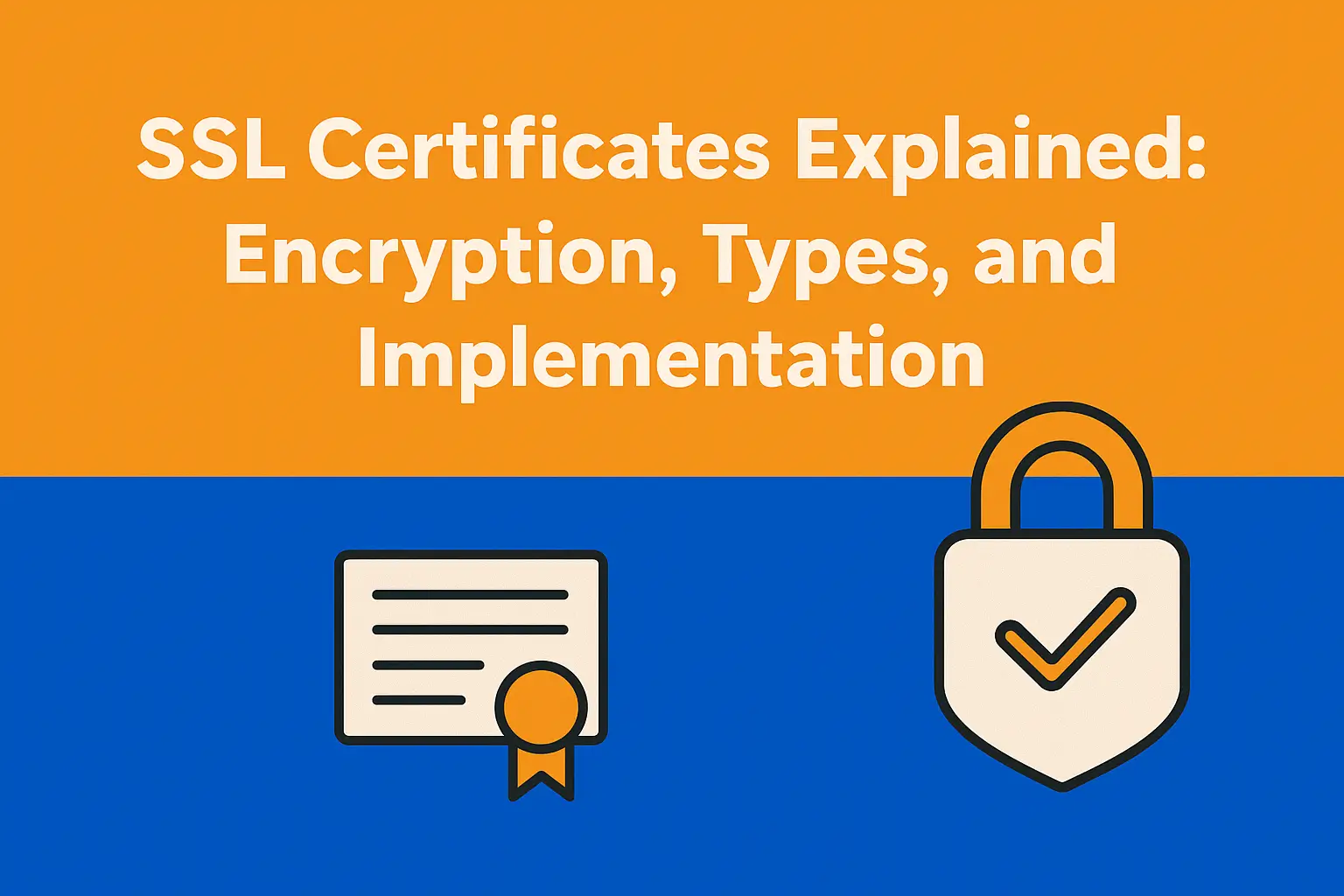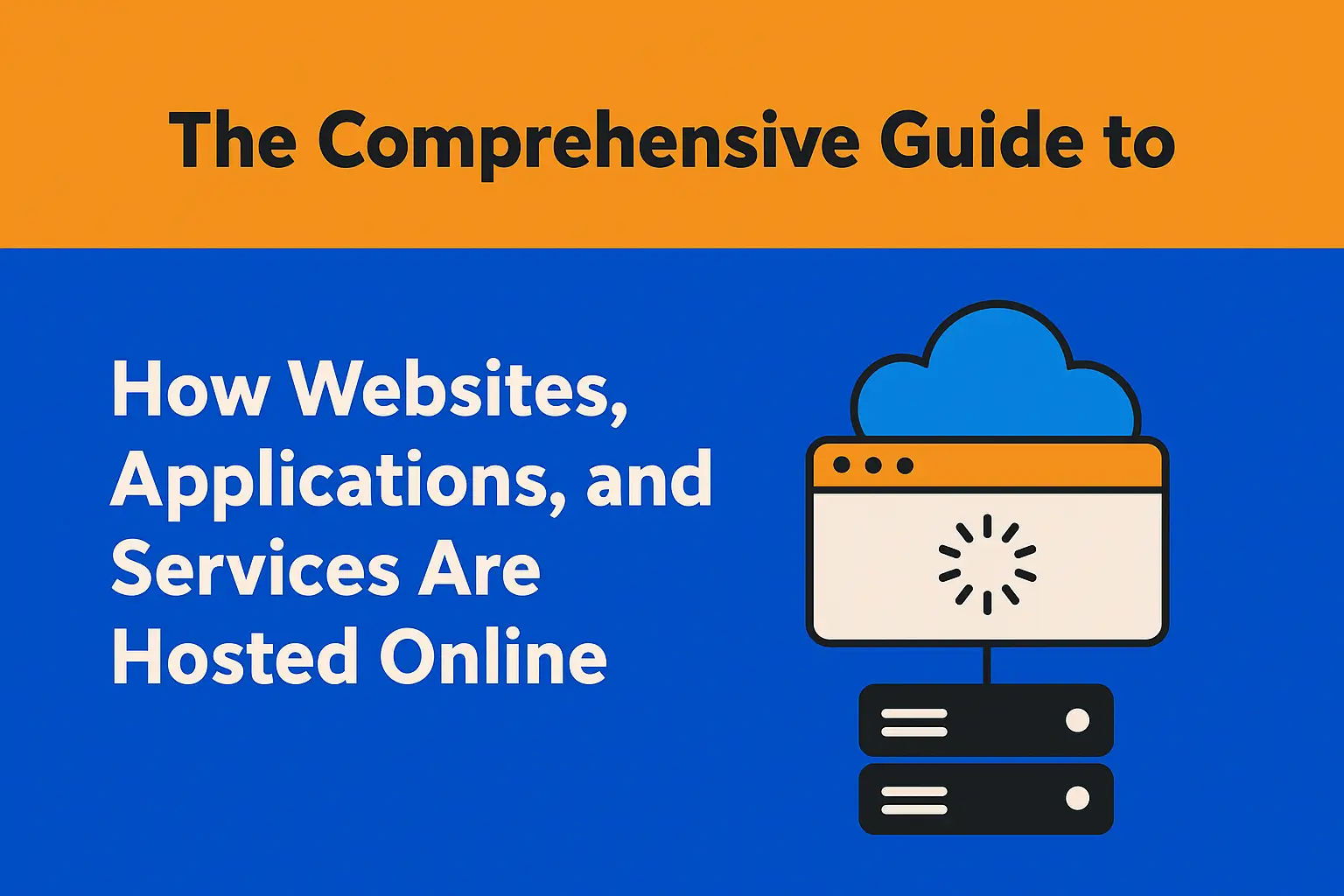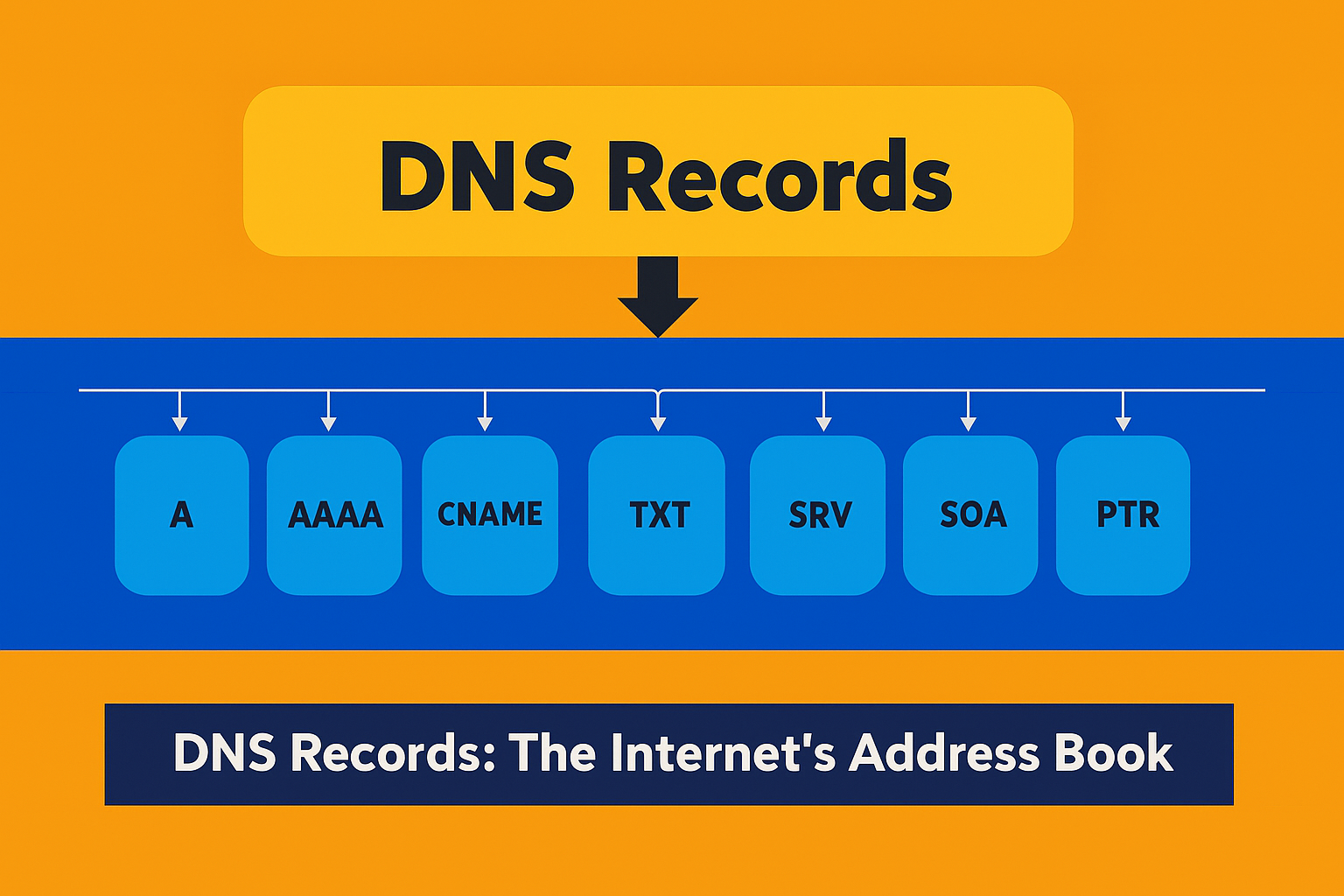
Introduction to Web Hosting
Web hosting is a fundamental service that enables individuals and organizations to make their websites accessible through the Internet. Essentially, it involves storing website data on special computers called servers. When a user types a website address into their browser, these servers deliver the required web pages to the user’s device, enabling them to view content efficiently.
Choosing the right web hosting solution is pivotal for the performance, security, and scalability of a website. There are several types of web hosting services available, each suited to different needs and budgets. Understanding these options is essential for making an informed decision.
Shared Hosting is often the starting point for new websites. In this setup, multiple websites are hosted on a single server, sharing the server’s resources such as CPU, RAM, and disk space. While cost-effective, shared hosting may not provide the performance and security required for high-traffic or resource-intensive websites.
VPS Hosting, or Virtual Private Server hosting, offers a middle ground between shared and dedicated hosting. Here, a physical server is divided into several virtual servers, each with its own dedicated resources. This provides greater control, improved performance, and enhanced security compared to shared hosting, making it suitable for growing businesses.
Dedicated Hosting involves leasing an entire physical server solely for one’s website. This premium service ensures maximum performance, security, and customization, as all server resources are exclusively allocated to a single client. Dedicated hosting is ideal for large enterprises or websites with substantial traffic and resource demands.
As we delve deeper into the specifics of VPS and dedicated hosting, we will provide a detailed comparison to help you determine which option aligns best with your business requirements.
Understanding VPS Hosting
Virtual Private Server (VPS) hosting is a popular type of web hosting that leverages virtualization technology to provide dedicated resources on a single physical server. Essentially, a VPS splits a physical server into multiple isolated virtual environments, each operating as an independent server. This method allows multiple users to host websites without affecting each other’s performance, thereby offering an efficient and cost-effective hosting solution.
The core of VPS hosting lies in its virtualization technology. Through software like VMware or Hyper-V, the physical server is partitioned into several virtual servers, each with its own operating system (OS), storage, and bandwidth allocation. These virtual servers function independently and offer root access, allowing users to install their own software, make custom configurations, and control their virtual environment fully.
One defining feature of VPS hosting is scalability. As your business grows, resources like CPU, RAM, and storage can be easily adjusted to meet increasing demands. This flexibility makes VPS a viable option for businesses that anticipate growth or fluctuations in traffic. Moreover, VPS hosting is cost-effective. Unlike dedicated hosting, where you pay for an entire physical server, VPS allows you to rent a portion of a server, thus reducing expenses while still providing many of the benefits of a dedicated server.
Typical use cases for VPS hosting include hosting websites with moderate to high traffic, managing multiple websites, and running web applications that require reliable performance and security. VPS is especially useful for developers who need a customizable environment to test new applications or manage databases.
Additionally, VPS hosting offers a higher level of control and flexibility compared to shared hosting. Users can fine-tune their server settings to enhance performance, implement security measures, and optimize configurations for specific workloads. This granularity makes VPS hosting a preferred choice for businesses seeking autonomy without the need for investing in costly dedicated servers.
Understanding Dedicated Hosting
Dedicated hosting is a premium web hosting solution where an entire physical server is leased exclusively to a single user or website. Unlike shared hosting, where multiple websites share resources on the same server, or virtual private server (VPS) hosting, which partitions a server into multiple virtual servers, dedicated hosting offers unrivaled performance, control, and customization by isolating server resources for one entity.
One of the most significant benefits of dedicated hosting is the enhanced performance it delivers. Since there are no other users sharing the server’s resources, users experience faster load times and more reliable uptime. This makes dedicated servers particularly beneficial for websites with high traffic volumes or resource-intensive applications. Furthermore, the exclusive use of server resources eliminates the possibility of performance degradation caused by other users, a common issue in shared hosting environments.
Control and customization are other substantial advantages of dedicated hosting. Users have full root access to the server, allowing them to install custom software, configure settings to their exact specifications, and implement security measures tailored to their needs. This level of control is crucial for businesses requiring specialized software or environments, providing the flexibility needed to optimize their server’s performance and security.
Speaking of security, dedicated hosting offers superior protection compared to other hosting options. The isolation of resources ensures that security breaches affecting other users do not compromise the dedicated server. Businesses can also employ advanced security measures, such as hardware firewalls and intrusion detection systems, to safeguard sensitive data, making dedicated hosting an ideal choice for industries with stringent security requirements, such as finance and healthcare.
Common use cases for dedicated hosting include high-traffic e-commerce sites, large enterprises, and websites hosting resource-intensive applications such as gaming servers or data analytics platforms. In these scenarios, the performance, control, customization, and security dedicated hosting provides are crucial for maintaining optimal functionality and user experience.
Performance and Resource Allocation
When evaluating hosting solutions from a performance perspective, Virtual Private Servers (VPS) and dedicated hosting present distinct advantages and challenges. Understanding how each allocates resources like CPU, RAM, storage, and bandwidth is crucial for making an informed decision that aligns with your business needs.
In a VPS environment, resources are shared among multiple users, though each is allocated a guaranteed portion of the server’s capabilities. This means that the CPU, RAM, storage, and bandwidth are divided into virtual segments. While this ensures a baseline level of performance, it also implies that peak performance can be impacted by the activity levels of other users on the same server. For instance, if your business experiences sudden traffic spikes, some of your resources may be dampened by the overall demand on the shared infrastructure.
Conversely, dedicated hosting offers an entirely different approach by providing exclusive access to server resources. The CPU, RAM, storage, and bandwidth are not shared, which guarantees consistent and predictable performance levels. For businesses with high-performance requirements, such as e-commerce platforms or data-intensive applications, dedicated hosting can handle intense workloads without the risk of performance degradation due to other users’ activities.
The impact of resource sharing in VPS hosting can be seen in smaller to mid-sized businesses, such as startups or small e-commerce sites. These entities often benefit from the cost-effectiveness of VPS while accepting the minor risks associated with shared resources. On the other hand, businesses like large-scale online retailers or enterprises with substantial traffic and data handling needs often find dedicated hosting essential. The isolation provided by dedicated servers ensures robust performance, optimal load times, and reliable user experiences even during peak operational periods.
Ultimately, the choice between VPS and dedicated hosting should consider the specific performance demands of your business. Each has unique benefits, and understanding these nuances will help in selecting a solution that effectively meets your operational requirements.
Cost Considerations
When considering the cost differences between VPS (Virtual Private Server) and dedicated hosting, it is essential to understand the various components that contribute to the overall pricing models. For VPS hosting, the initial setup costs are generally lower compared to dedicated hosting. VPS providers often charge a one-time setup fee that covers the allocation of virtual server space, software installation, and basic configurations. These setup costs can range from being nominal to moderately priced, depending on the level of customization required.
In terms of monthly fees, VPS hosting typically offers a more budget-friendly option for small to medium-sized businesses. Monthly expenses for VPS plans vary based on the allocated resources such as CPU, RAM, and storage space. Generally, VPS monthly fees can range from $20 to $100, making it a cost-effective solution for businesses that do not require an entire physical server’s resources. Additionally, VPS hosting allows for scalable upgrades; businesses can opt for higher-tier plans as their requirements grow, usually without incurring hefty migration costs.
On the other hand, dedicated hosting involves a more substantial financial commitment. Initial setup fees for dedicated servers are higher, often covering the cost of hardware procurement, installation, and configuration. Monthly fees for dedicated servers greatly exceed those of VPS plans, typically ranging from $80 to several hundred dollars. The specific cost depends on the hardware specifications and any additional services such as managed hosting or advanced security features.
For large businesses or enterprises requiring robust performance and complete control over server resources, the cost-effectiveness of dedicated hosting becomes evident. High-traffic websites or applications with complex workloads can significantly benefit from the exclusive resources of dedicated servers, justifying the higher expense.
In summary, VPS hosting presents a more economical option for small to medium-sized businesses with scalable growth potential, while dedicated hosting is suited for large businesses that prioritize performance and resource control despite higher costs. Businesses should evaluate their specific requirements and financial capacity to choose the most appropriate hosting solution.
Scalability and Future Growth
When selecting a hosting solution, scalability stands as a pivotal factor in planning for future growth. Both VPS (Virtual Private Server) and dedicated hosting differ significantly in their capacity to adapt to an organization’s evolving needs.
VPS hosting offers remarkable flexibility in terms of scalability. Essentially, VPS allows businesses to easily upgrade or downgrade resources such as CPU, RAM, and storage. This adaptability makes VPS a suitable choice for startups and small to medium-sized enterprises (SMEs) that might experience fluctuating demands. The ability to scale resources with a few clicks or a simple request to the hosting provider ensures that performance can be matched to the current needs without significant downtime or migration tasks.
On the other hand, dedicated hosting provides scalability through the addition or modification of hardware components. This could entail adding more RAM, upgrading the CPU, or scaling storage by adding new drives. While dedicated servers offer robust computing power and reliability, the process of scaling may involve more substantial efforts, including potential physical upgrades and downtime. Therefore, dedicated hosting is often favored by larger businesses or those with relatively stable and predictable growth patterns.
Considering future growth is essential to avoid disruptions and ensure consistent performance. VPS hosting, with its virtualized environment, offers a non-disruptive path for scaling. As your business needs expand, additional resources can be provisioned on demand, making it a suitable option for companies expecting rapid and unpredictable growth. Conversely, dedicated hosting offers unparalleled performance for businesses with substantial and consistent resource requirements, making it ideal for enterprises where demands do not fluctuate dramatically.
Typical business growth patterns highlight different needs. For instance, a technology startup expecting exponential user growth might opt for VPS hosting due to its quick scalability. Conversely, a well-established e-commerce company with a steady increase in traffic might benefit from the robust, dedicated resources of dedicated hosting.
Choosing between VPS and dedicated hosting depends on how each solution aligns with your anticipated growth and needs. Both offer distinct advantages, ensuring that businesses can find a hosting solution tailored to their specific scalability requirements.
Security and Reliability
When comparing the security and reliability of Virtual Private Server (VPS) hosting and dedicated hosting, several key factors emerge. In terms of security, dedicated hosting generally offers superior protection due to the physical isolation of resources. This isolation means that dedicated servers are not shared with other users, reducing the risk of cross-site contamination or resource contention. Physical security measures, such as data center access controls and surveillance, further bolster the security profile of dedicated hosting solutions.
VPS hosting, while generally secure, involves shared environments where multiple virtual servers reside on a single physical machine. However, VPS providers mitigate potential risks through robust virtualization technologies that isolate each VPS instance. This isolation ensures that vulnerabilities or attacks impacting one VPS do not spread to others. Advanced DDoS (Distributed Denial of Service) protection is also commonly implemented on VPS platforms to prevent service disruptions.
In terms of reliability, dedicated hosting excels with its unparalleled uptime and server stability. Dedicated servers are typically equipped with high-grade hardware and redundant systems to ensure continuous operation, which is crucial for websites with high traffic volumes or critical business operations. The exclusive allocation of resources means that performance is predictable and consistent, devoid of interference from other users.
VPS hosting, while slightly less reliable due to the shared nature of its infrastructure, still offers commendable uptime and stability. Reputable VPS providers ensure high availability through sophisticated network configurations and proactive monitoring. Resource contention issues are minimized by modern hypervisors and resource management policies, ensuring that spikes in demand on one VPS do not significantly impact others.
Overall, the choice between VPS and dedicated hosting hinges on specific business needs. For critical, high-traffic websites requiring maximum security and reliability, dedicated hosting is often the preferred option. Conversely, VPS hosting strikes a balance between cost and performance, suitable for businesses looking for a scalable and robust solution.
Making the Right Choice
In making the pivotal decision between VPS hosting and dedicated hosting, a thorough understanding of specific business needs is essential. This decision will significantly impact the performance, scalability, security, and cost of web operations. A Virtual Private Server (VPS) offers the advantages of a cost-effective and flexible hosting environment, suitable for small to medium-sized businesses experiencing growth. On the other hand, dedicated hosting provides an unparalleled level of control, resource allocation, and security, making it ideal for larger businesses with high traffic websites or complex application requirements.
To effectively determine which hosting solution aligns best with your business goals, consider the following framework:
1. Assess Your Budget: Evaluate the financial implications. VPS hosting generally offers lower upfront costs and can be easily scaled. Dedicated hosting, while more expensive, provides substantial resources and performance benefits.
2. Evaluate Performance Needs: Analyze your website or application’s performance requirements. If your project demands high performance with significant traffic and complex database operations, dedicated hosting might be the preferred choice.
3. Consider Scalability: Determine future growth potential. VPS hosting offers flexibility and scalability, allowing for resource upgrades as your business expands. On the other hand, dedicated hosting can handle substantial growth but may require more planning and resources for scaling up.
4. Analyze Security Requirements: Evaluate the level of security needed. For businesses handling sensitive data or requiring higher security measures, dedicated hosting presents a more secure option with isolated resources.
5. Factor in Technical Expertise: Consider your team’s technical capabilities. VPS hosting is often managed and easier to handle. Dedicated hosting, however, requires a more skilled IT team to manage the server environment.
By contemplating these aspects, you can make an informed decision aligning with your business strategy. For additional guidance, consider consulting with hosting experts or reviewing resources that delve deeper into VPS versus dedicated hosting environments.





0 Comments